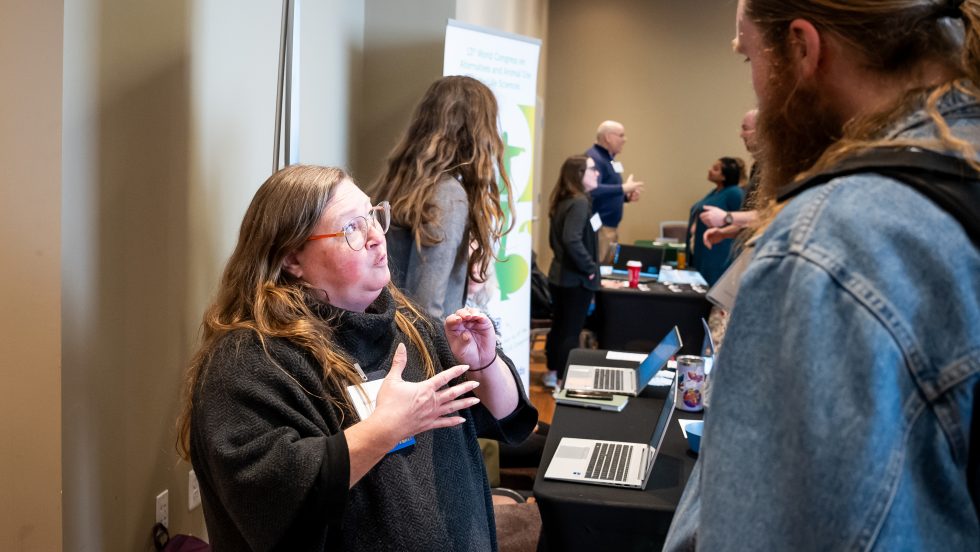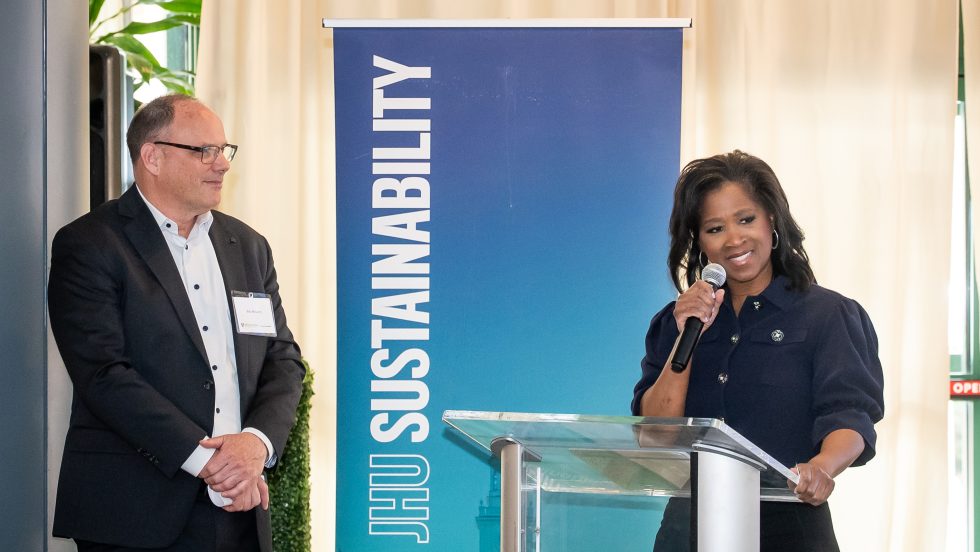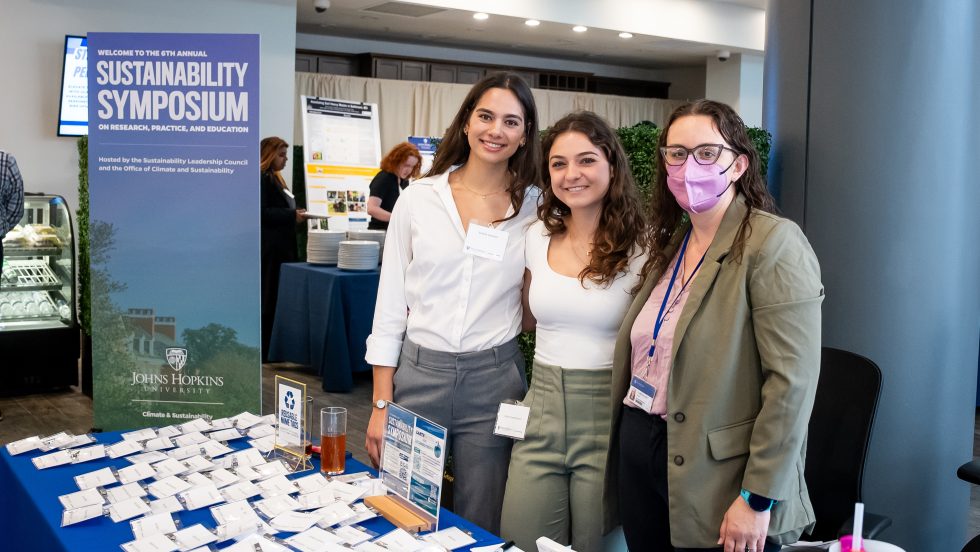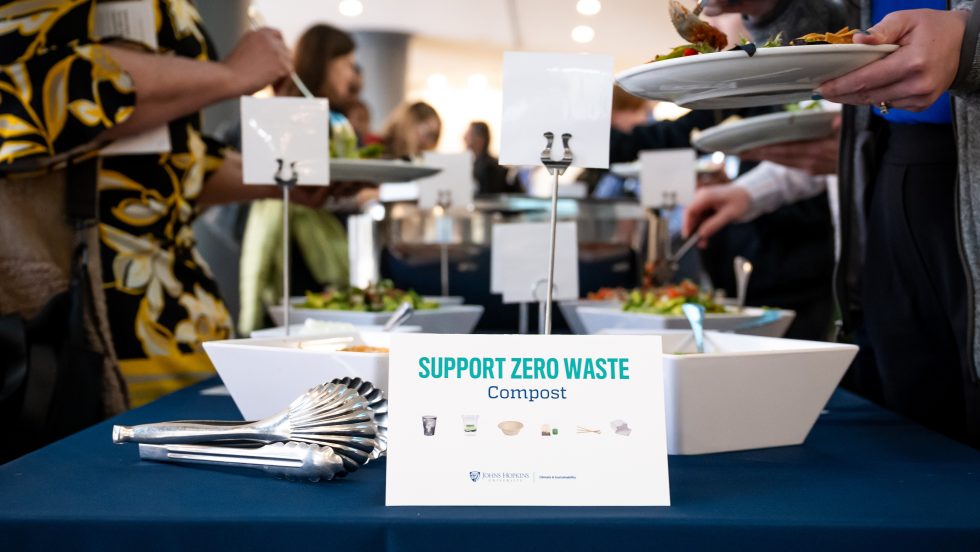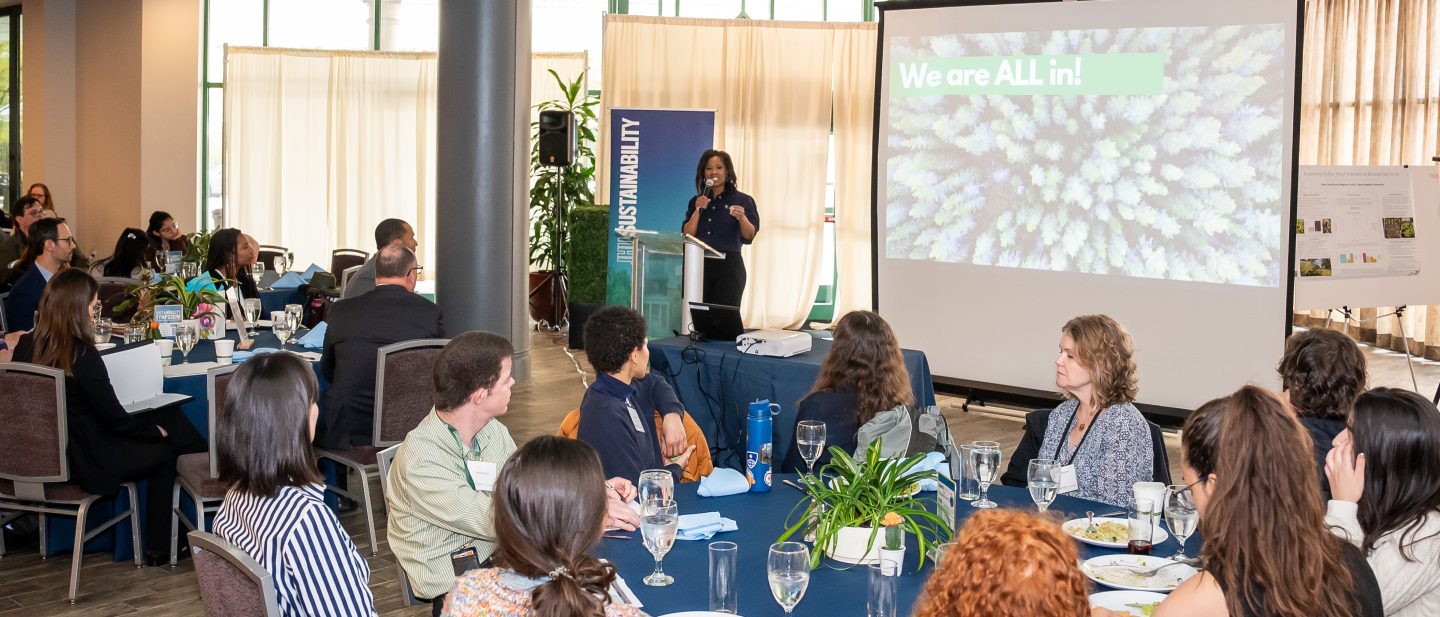
The sixth-annual Johns Hopkins University Sustainability Symposium, hosted by the Sustainability Leadership Council and the Office of Climate and Sustainability, was held on April 2, 2025, at the Inn at the Colonnade. The event connected a record number of over 330 students, faculty, and staff from departments across the university to highlight their work, learn from one another, and foster multidisciplinary dialogue on climate and sustainability research, practice, and education.
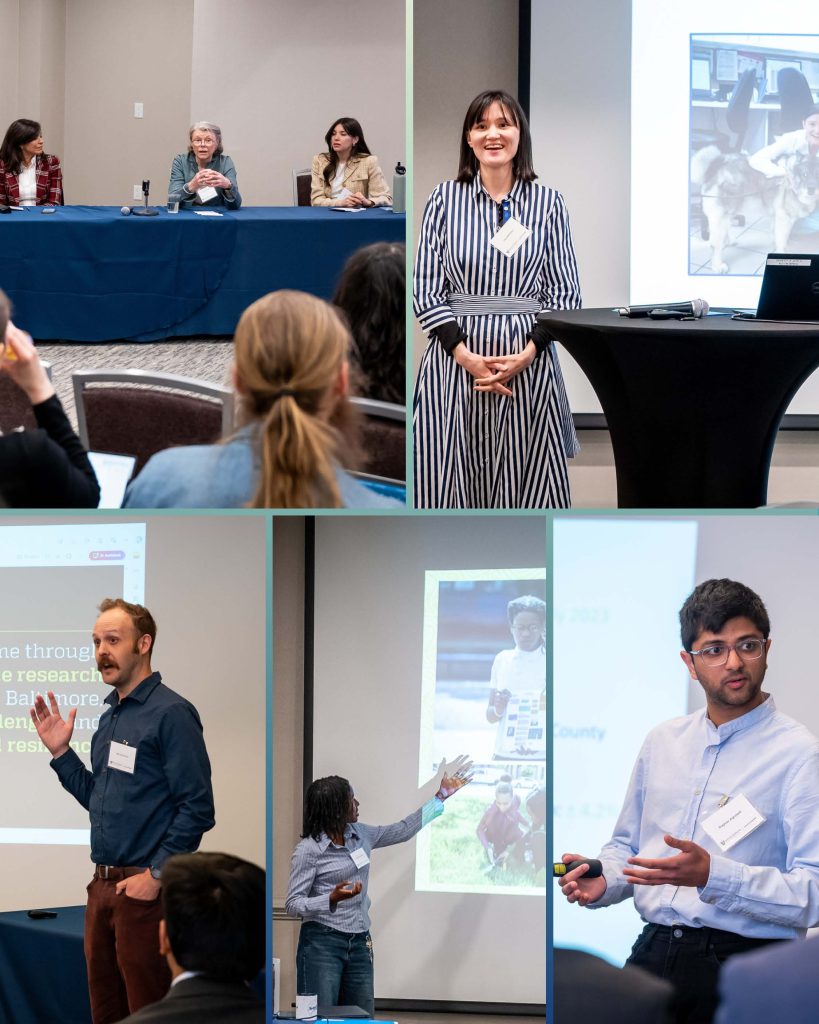
The day’s thirteen panel discussions and eighteen presentations were broken into five technical tracks:
- Climate Mitigation & Adaptation
- Health, Equity, & Environmental Justice
- Built & Natural Environment
- Education & Community
- Responsible Consumption
Topics included stormwater management on campus, improving K-12 environmental education, shaping planetary health policy, Baltimore-area residents’ perceptions of future climate change risks, how to host sustainable events, clean energy supply chains, efforts to reduce solid waste in hospital operating rooms, and more. Centers, departments, and institutes focused on sustainability were represented, including the Baltimore Social-Environmental Collaborative, the Bloomberg Center for Public Innovation, the Center for a Livable Future, the Johns Hopkins Institute for Planetary Health, and the Ralph O’Connor Sustainable Energy Institute, among others.
Serena McIlwain, secretary of the Maryland Department of the Environment, gave a keynote address in which she discussed the state department’s focus on sustainability, equity, and organizational excellence to strengthen Maryland’s environmental policies and programs. “Sustainability isn’t just about protecting the environment—it’s about economic prosperity and equity. One cannot exist without the other,” she noted. McIlwain stressed the importance and influence of institutions like Hopkins to advance environmental research, set standards, and push for change.
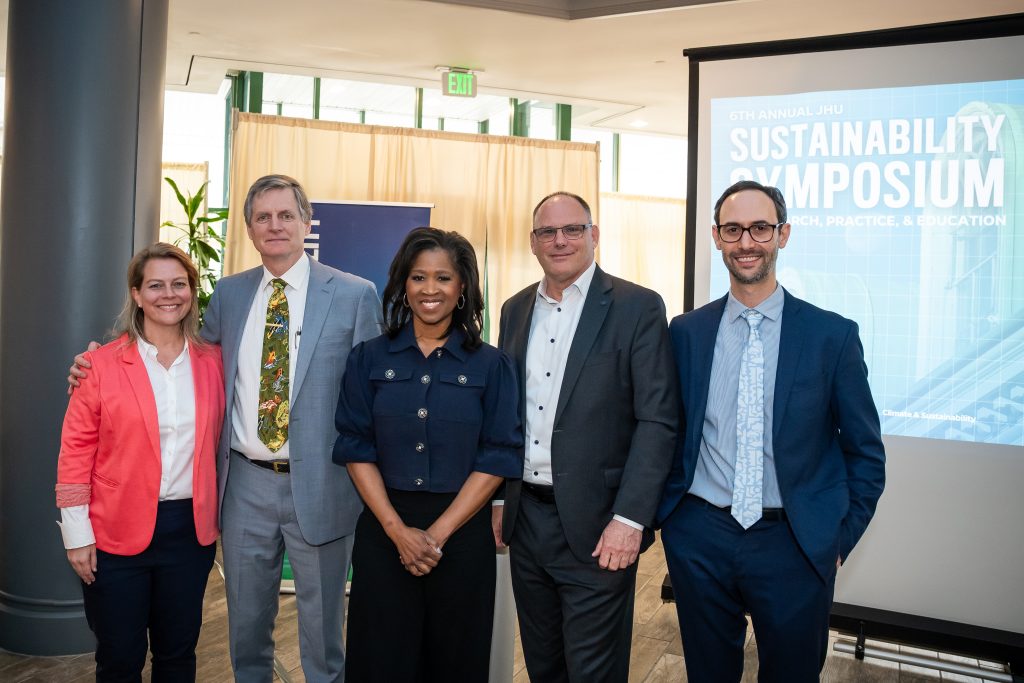
Attendees also heard remarks from Peter Winch, professor at the Bloomberg School of Public Health’s Department of International Health; Bob McLean, vice president of facilities; and Julian Goresko, director of the Office of Climate and Sustainability. Winch and McLean serve as co-chairs of the Sustainability Leadership Council.
From 21 poster presenters, attendees were able to learn about research being done across Johns Hopkins’ campuses on topics ranging from clean energy supply chains, to soil heavy metals in Baltimore, to opinions on climate change education. During the afternoon breaks, 12 centers and organizations also set up informational tables to connect with symposium participants.
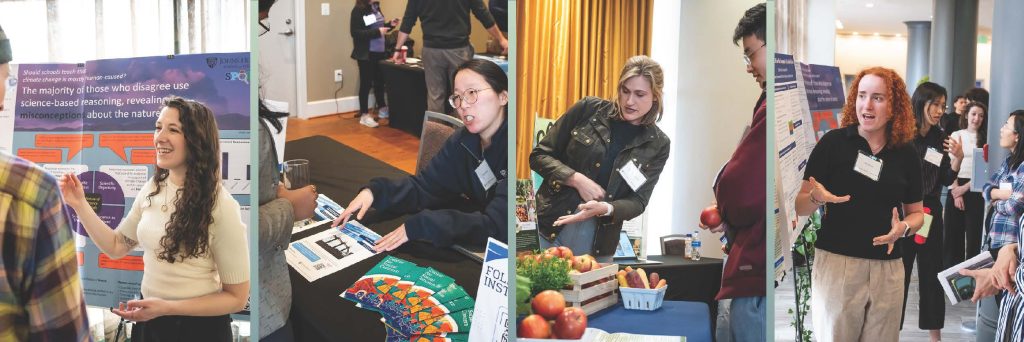
Explore the full list of sessions here, and learn more about the research posters presented here.
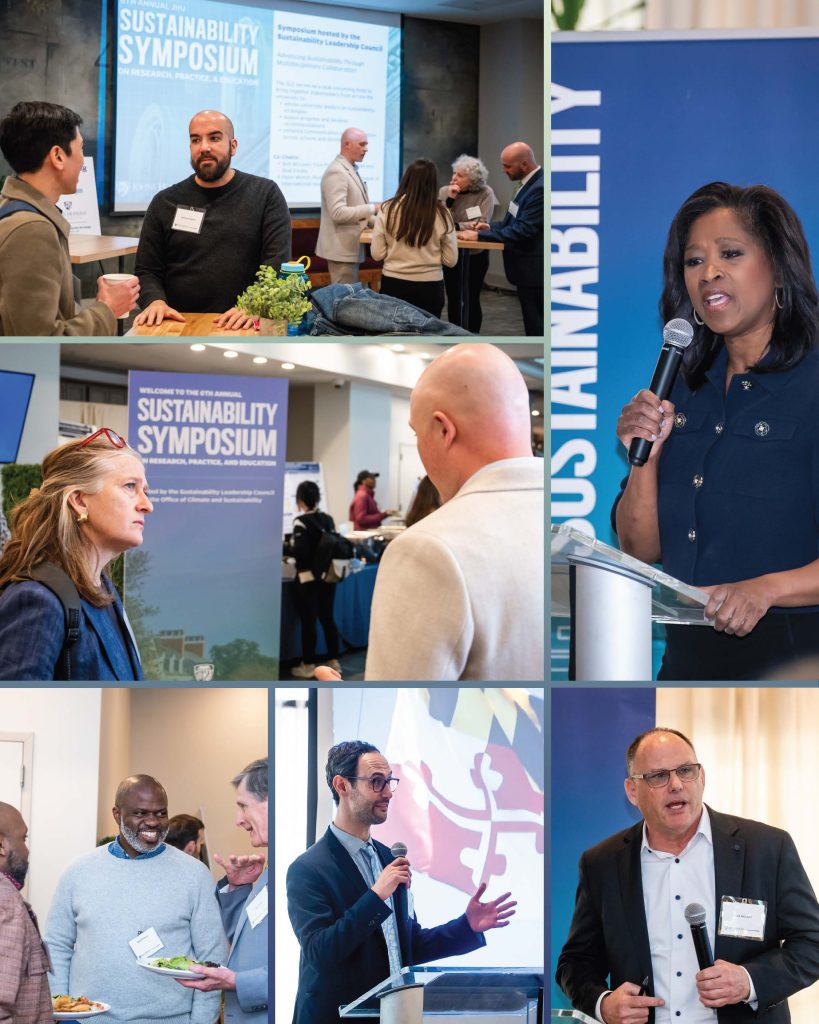
The symposium concluded with a networking social hosted by the university’s Life Design Lab, where attendees had the opportunity to connect with one another over their shared interest in sustainability research and practice. While kicking off the networking social, Kallista Fong, an intern in the Office of Climate and Sustainability, described the importance of forming these connections: “It only takes a couple of conversations to change the trajectory of your life.”
The Office of Climate and Sustainability’s Earth Month programming is part of the Office’s work to advance the university’s Climate Action and Sustainability Plan. The plan, released in October 2024, outlines the university’s commitments to reduce its environmental impact and leverage the multidisciplinary expertise found on campus to create scalable solutions to address climate change.
